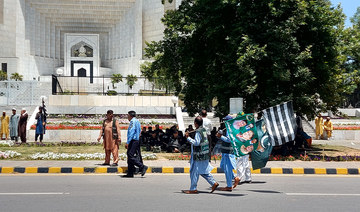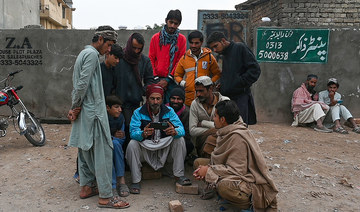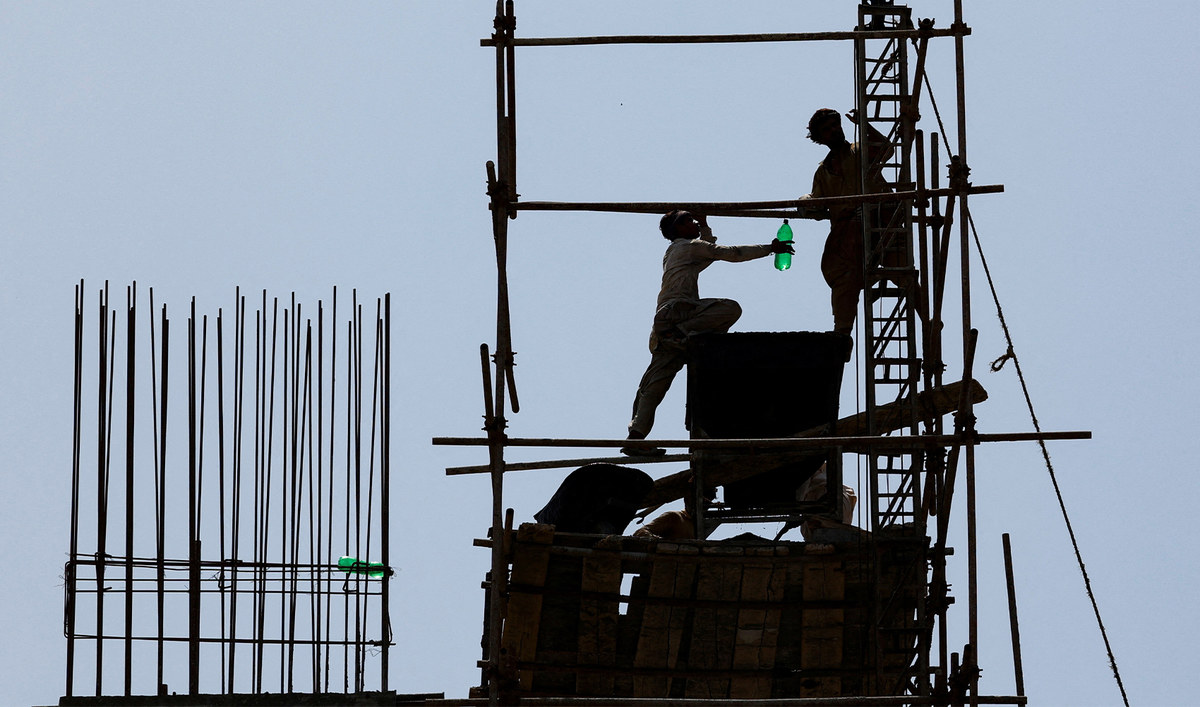LAHORE: Former Pakistan prime minister Imran Khan was due back in court on Monday after his arrest and brief detention last week sparked days of deadly civil unrest.
Khan was arrested on graft charges on Tuesday, prompting supporters to rampage through cities across Pakistan before the Supreme Court declared his detention illegal three days later.
In Islamabad, hundreds of supporters of the ruling alliance of coalition parties also began to gather on Monday for a protest against the Supreme Court’s decision to release Khan.
The former international cricket star was due to return to the Lahore High Court, in his home town, to face fresh charges alleging he planned the violence that followed his arrest, one of his lawyers said.
“Khan will be appearing in court today for cases registered against him related to the incidents of 9 May to 12 May,” lawyer Intazar Hussain Panjutha told AFP.
At least nine people were killed, hundreds of police officers injured and more than 7,000 people detained in last week’s unrest before Khan was released on bail on Friday, authorities said.
Khan will again seek bail in the new cases, which include a charge relating to the death of a supporter of his Pakistan Tehreek-e-Insaf (PTI) party in March.
“He already has protective bail for 10 days in the rest of the known cases against him,” Panjutha said.
An embargo issued by the Islamabad High Court preventing Khan’s arrest on any known cases was also due to expire on Monday.
Khan, 70, said on Twitter he expected to be arrested again.
“Using (the) pretext of violence while I was inside the jail, they have assumed the role of judge, jury and executioner,” he wrote of the current government.
Interior Minister Rana Sanaullah, who has vowed Khan will be rearrested, told reporters on Sunday the “terrorism and mobbing was all preplanned and this was done by Khan.”
Khan’s wife Bushra Bibi was also due in court to seek bail in the same graft case for which Khan was arrested last week, PTI officials said.
Parties that ousted Khan in a no-confidence vote in April 2022 planned protests on Monday against the Supreme Court’s decision to grant Khan’s release.
“People want to come in very large numbers because of a deep sense of anger and anguish,” Sanaullah said Sunday.
There was a heavy security presence in the capital on Monday, and Islamabad police said some protesters had entered the so-called red zone housing the Supreme Court.
Khan has become snarled in dozens of legal cases since he was ousted.
Analysts say legal hurdles are often used to discourage dissent in Pakistan and Khan dismisses the cases as politically motivated ahead of elections due no later than October.
Khan has waged an unprecedented campaign of defiance against Pakistan’s army, which has ruled the nation for nearly half of its 75-year history and continues to wield massive influence.
When Khan surged into office in 2018, most understood it was with the backing of the generals. Analysts likewise said when he left power it was because he had fallen out of favor with the top brass.
In opposition Khan has made explosive claims about the military’s involvement in politics, including that they plotted a November assassination attempt in which he was shot in the leg while he campaigned for fresh polls.
His arrest last Tuesday came just hours after he repeated the allegations at a rally.





















